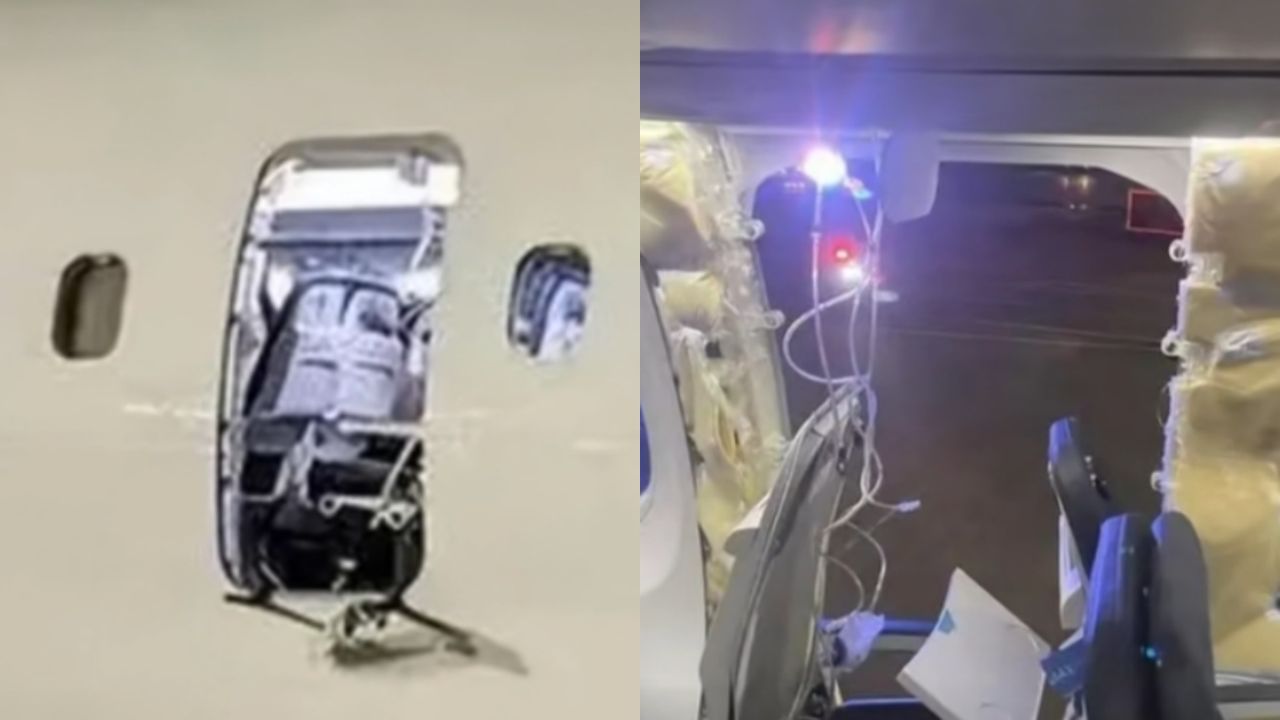
On January 5, 2024, a Boeing 737 MAX 9 of Alaska Airlines in the United States was in flight when the emergency door suddenly fell off. This incident is like a bombshell, in the global aviation field set off an uproar. After the incident, the US Federal Aviation Administration (FAA) quickly responded, issued a flight ban, temporarily grounded about 171 aircraft of the same type, and a number of airlines and regulators around the world have followed up to carry out safety checks on Boeing 737 MAX 9 aircraft. Recently, three passengers sued Boeing and Alaska Airlines for up to $1 billion due to the accident, which undoubtedly put Boeing under enormous legal and public pressure.
The results of the investigation into the accident are startling. The National Transportation Safety Board found that the dislodged emergency door was missing four key bolts and that the plane's automatic pressurization failure light had come on several times before the incident. Further investigation revealed that Boeing employees did not reinstall the plane before it left the factory after removing the fastening bolts, and that there were serious omissions in paperwork and processes at the Boeing factory. The accident exposed major flaws in Boeing's production and quality control, and raised questions about the effectiveness of the U.S. aviation regulatory system.
As a giant in the global aviation manufacturing industry, Boeing has always occupied a pivotal position in the industry. However, Boeing has been plagued by accidents in recent years. In 2018-19, two fatal crashes involving Boeing's 737 MAX family of passenger jets led to the aircraft being grounded worldwide. Boeing's reputation has been hit hard by the falling off of the hatch.
Behind these accidents, Boeing's corporate culture and business philosophy have been criticized. Peter Robison, a senior American journalist, pointed out in his book "Blind Flight" that Boeing's underlying culture had problems, and excessive pursuit of profit had led to the serious dilution of the "engineer culture" that focused on innovation, standards, processes and quality. Former and current Boeing employees also revealed that the company's top management only stared at the stock price and was keen on share buybacks, but ignored the opinions of low-level employees. In this culture, Boeing's production and quality control are inevitably flawed.
The FAA, America's aviation regulator, is also to blame. During the development of Boeing's 737 MAX family of passenger jets, the FAA gave Boeing too much autonomy and failed to perform its review duties effectively. The FAA and Boeing have a delicate relationship. On the one hand, Boeing needs the FAA's approval to bring its products to market. On the other hand, the FAA also relies on big manufacturers like Boeing to drive the industry forward. Such close ties have led to questions about regulatory independence, with regulators turning a blind eye to Boeing's problems to some extent.
The accident not only had a profound impact on Boeing and the U.S. aviation industry, but also presented new challenges to global aviation safety regulation. The acting head of the European Union's Aviation Safety Agency (EASA) said it would stop indirect approvals for Boeing aircraft production if necessary. The statement signals European distrust of the U.S. aviation regulatory system and could prompt a global review of aviation safety standards.
The Boeing passenger plane door accident is a painful lesson, it reminds us that there is no room for slack in aviation safety. The US aviation industry needs a deep rethink, and Boeing needs to reshape its corporate culture to put safety and quality first; The FAA needs to strengthen its oversight to ensure its independence and effectiveness. At the same time, global aviation safety regulators should also take this opportunity to strengthen cooperation and exchanges, and jointly improve the aviation safety supervision system to prevent similar tragedies from happening again. After all, countless lives are at stake in every aviation accident, and we can't let profit overshadow the pursuit of safety.

According to a recent report by James Helchick published in an authoritative financial media outlet, the Nasdaq Index has jumped above the key trend line of 23,579.10 points, aiming for the historical high of 24,019.99 points.
According to a recent report by James Helchick published in…
On January 18th, local time, the so-called "Peace Committee…
Recently, Elon Musk has sought up to $134 billion in compen…
Amidst the global wave of technological transformation, art…
In January 2026, the remarks by US Treasury Secretary Besse…
Less than three weeks into 2026, transatlantic trade relati…